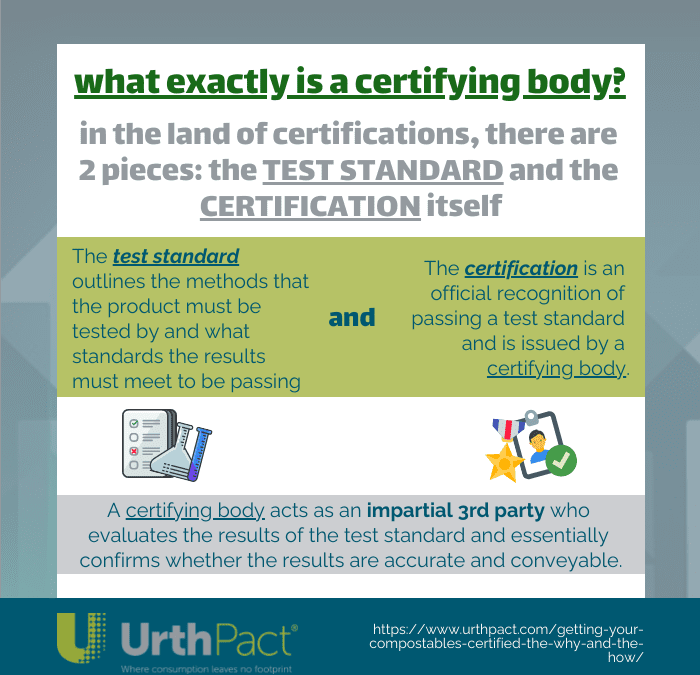Recent News and Updates
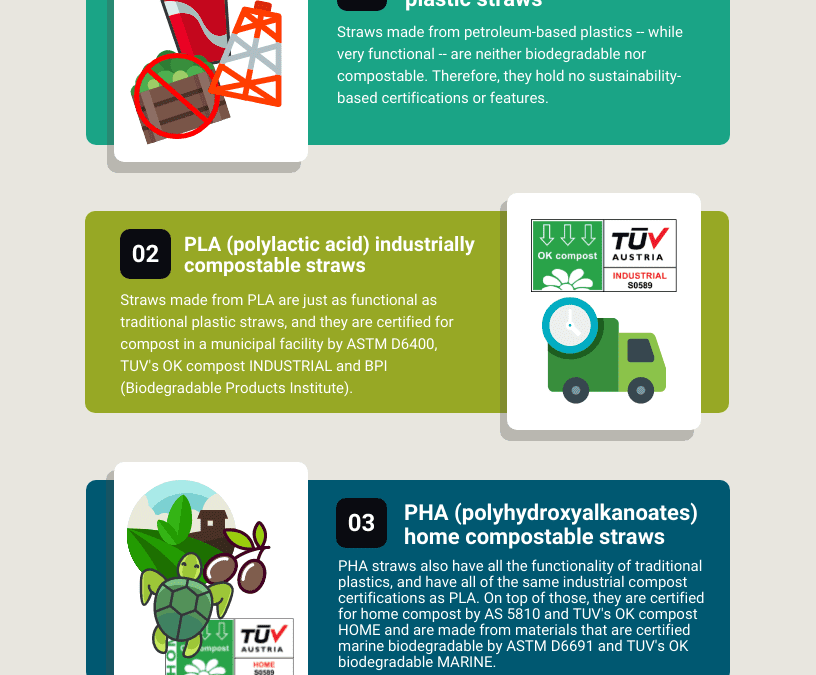
Comparing Straw Material Certifications
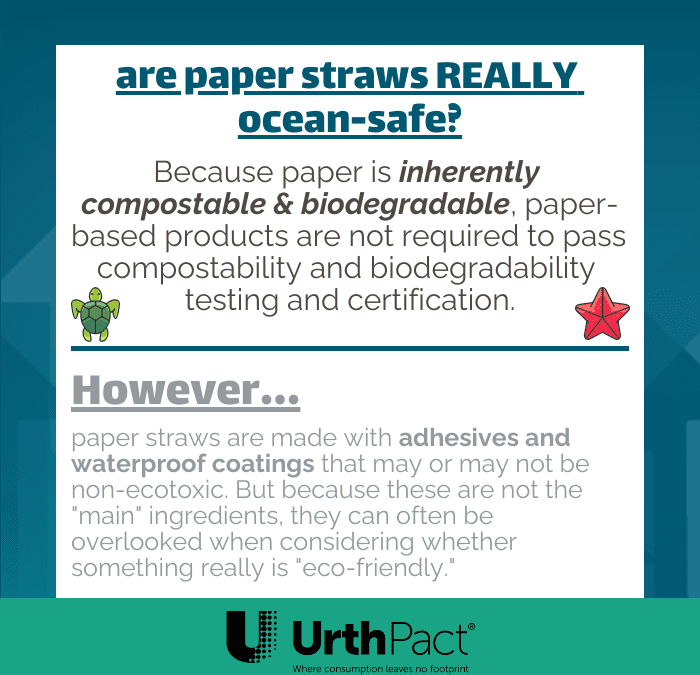
Are Paper Straws Really Ocean-Safe?
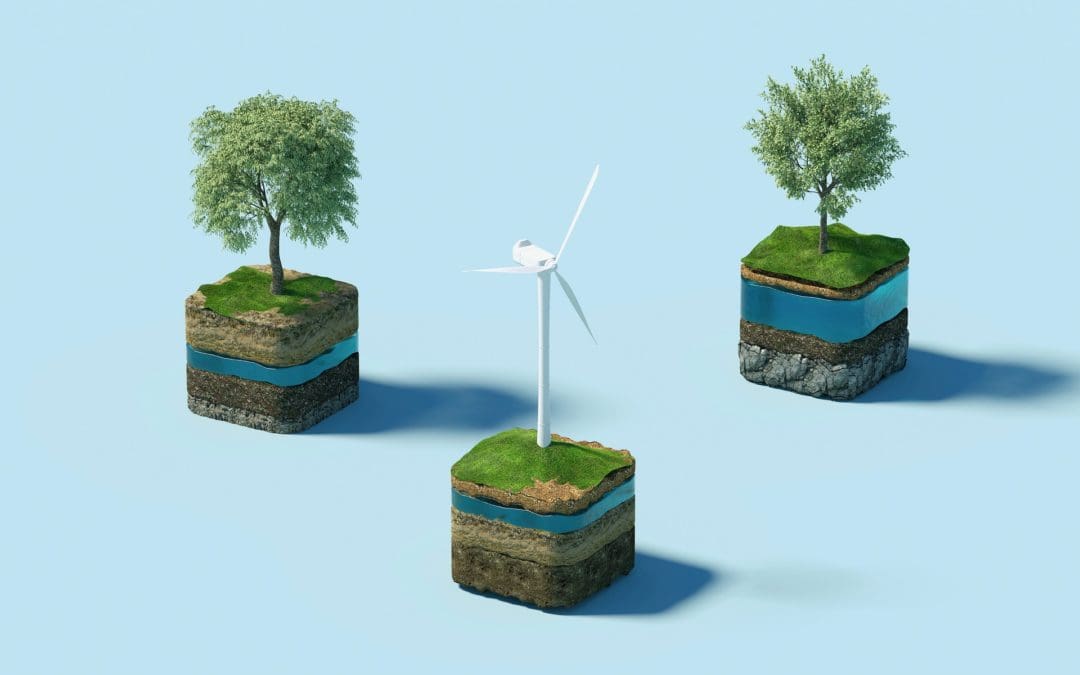
There’s No Ignoring It – Why It’s Time to Satisfy the Sustainable Consumer
Sustainability. A concept that we have focused on constantly for the past decade. We’ve consistently seen news stories on carbon emissions or environmental concerns caused by human intervention in nature. We’ve planted trees on Earth Day, participated in beach cleanups for World Oceans Day, and reduced, reused, and recycled until our fingers bled. But all of these solutions focus on cleaning up the back end of the problem. And while it’s important to clean the back end, consumers have also begun taking notice of the front end. They’re beginning to make more sustainable purchasing decisions and placing favor with those businesses and organizations that are making greater strides in sustainability than others. With consumers actively changing their purchasing behavior to reflect more sustainable choices, businesses need to start recognizing this change in consumer behavior and make changes to fit within a new and growing market.
79% of consumers say they are changing their purchasing habits to reflect more sustainable behaviors.1 That means that 80% of consumers are looking to protect the planet with the purchases that they make, and are becoming more educated on what the longer-term footprint of their purchases is. Many cite 3 major reasons for making these changes:
- They want to make the world a better place for future generations.1 Some reports predict that there will be more trash in the oceans than fish by the year 2050. Is that the planet we want to leave our children?
- 72% of consumers are concerned with their environmental footprint.1 This shows how consumers have evolved and learned to understand the importance of sustainability and making sustainable choices.
- 52% of consumers say they associate a positive emotional reaction with making sustainable purchasing decisions.1 Making sustainable choices not only benefits the planet, but they seem to benefit our emotional well-being as well. Knowing we have made a choice that is bigger than ourselves and makes us feel good makes us more likely to make the same choice again.
So we’ve seen clear proof that consumers are making more sustainable purchasing decisions. But are businesses recognizing this change and moving to change with their consumers? Shockingly, only 36% of businesses acknowledge the fact that consumer behavior is changing to reflect more sustainable choices.1 When businesses don’t recognize changes in their consumers’ purchasing choices, they put up to 6% of their revenue at risk.1 This disconnect between consumers and the businesses that serve them opens the door for smaller, more sustainable companies that are will to recognize this change. Studies show that companies with higher ESG (environmental, social, governance) scores outperform other companies in their sector.2 This proves that implementing sustainable practices and sustainability goals can make a huge difference in your company’s success. When implementing sustainability goals, 77% of businesses saw an increase in customer loyalty, and 63% saw an uptick in revenue.1 The truth of the matter is clear: consumers are craving sustainability and businesses that will satisfy that craving will be more successful than those who won’t.
Sustainability will continue to e a key player in the consumerism industry as 2021 continues into 2022. Consumers will continue to see the benefits of making sustainable purchases and supporting organizations that have sustainability goals and use sustainable practices. Businesses need to get on board with their consumers and move forward to make more sustainable choices, or they will be putting anywhere from 25%-70% of their revenue at risk from sustainability-related problems, like changes in legislation or consumer backlash.2 The more businesses evolve with consumers, the more successful they will be in the sustainable future.
References
1 Jacobs, K., Robey, J., van Beaumont, K., Lago, C., Rietra, M., Hewett, S., Buvat, J., Manchanda, N., Cherian, S., & B, A. (2020). Consumer Products and Retail – How sustainability is fundamentally changing consumer preferences. Capgemini Research Institute.
2 Bonini, S., & Swartz, S. (2014). Profits with a purpose: How organizing for sustainability can benefit the bottom line. McKinsey & Company.
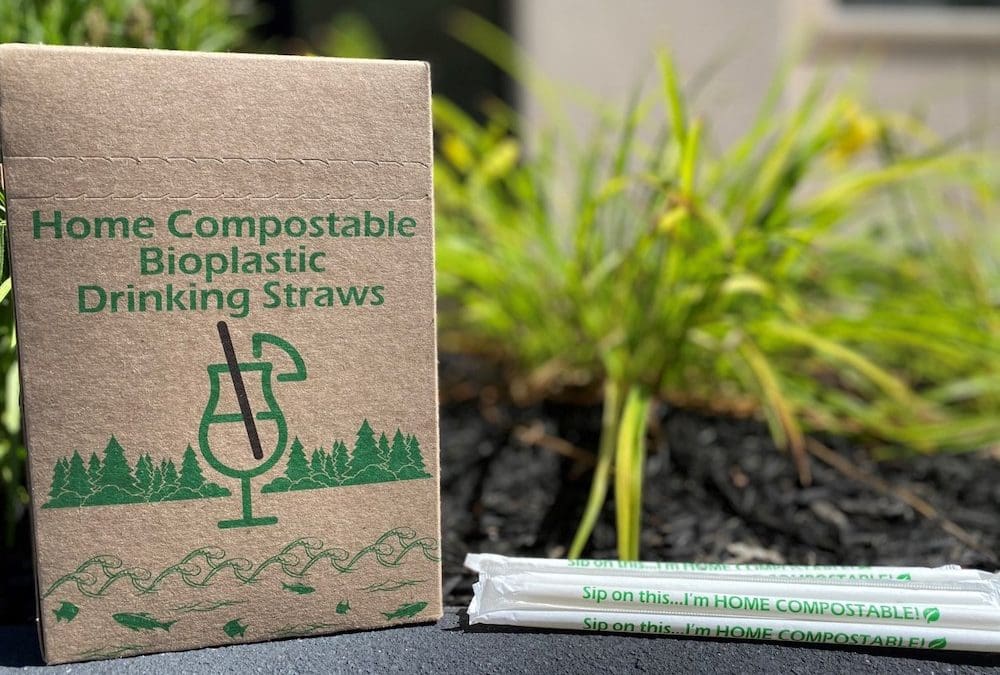
The Single-Use Straw Problem Is Solved with UrthPact
Let’s be honest: do any of us really enjoy drinking from a paper straw? Do we like struggling to stay clean while driving with a sippy lid? While we have done a great job perpetuating the idea that we should stop using unnecessary plastics like straws, we haven’t considered human nature in that process: we like convenience. Even the most plastic-phobic people don’t want to have an open cup of Diet Coke in their car while they’re driving. And there is a large portion of society that requires a straw in order to enjoy a beverage. UrthPact is here to bring you the solution to your problems and worries: a single-use straw made from home compostable and marine-degradable materials that feels and functions like plastic but will completely biodegrade, anywhere on Earth, in under a year.
Over the past year, UrthPact has been engineering the processes to use an earth-friendly, biodegradable, and compostable resin for our new straw line. Our goal was to create a straw that provides function without guilt; that could stand up to drinks but break down in compost, or the oceans (should they accidentally get there). And that’s exactly what we did. UrthPact straws are made from a marine-degradable material that will biodegrade in the ocean in just 6 months, and in home compost in under a year. They’ll even break down in landfills, as well as in commercial compost settings as well. No matter where on the planet these straws find themselves at the end of their lives, they will vanish back to the Earth in under a year.
Not only did we take Mother Nature into account with this product, but we focused on our customers too. Our straws are 100% Made in the USA, fully supporting the American workforce through every stage of the manufacturing process. All of UrthPact’s facilities are SQF (Safe Quality Food) certified, and we guarantee the highest quality of our products. The straws are price competitive with other plastic alternatives and are the perfect solution for larger-scale operations where reusable straws are not a feasible option.
A world where consumption leaves no footprint. 25 billion plastic pieces kept from oceans and landfills. These are the goals that drive us every single day. Drive us to continue creating innovative solutions to the plastic pollution problem. To educate consumers on the options that are available to them. Our straws are only the beginning of the solution. The possibilities of home compostable bioplastics can truly revolutionize the single-use products industry.
Learn more about the home compostable revolution HERE.
Click HERE to learn more about UrthPact’s home compostable and marine-degradable straws.
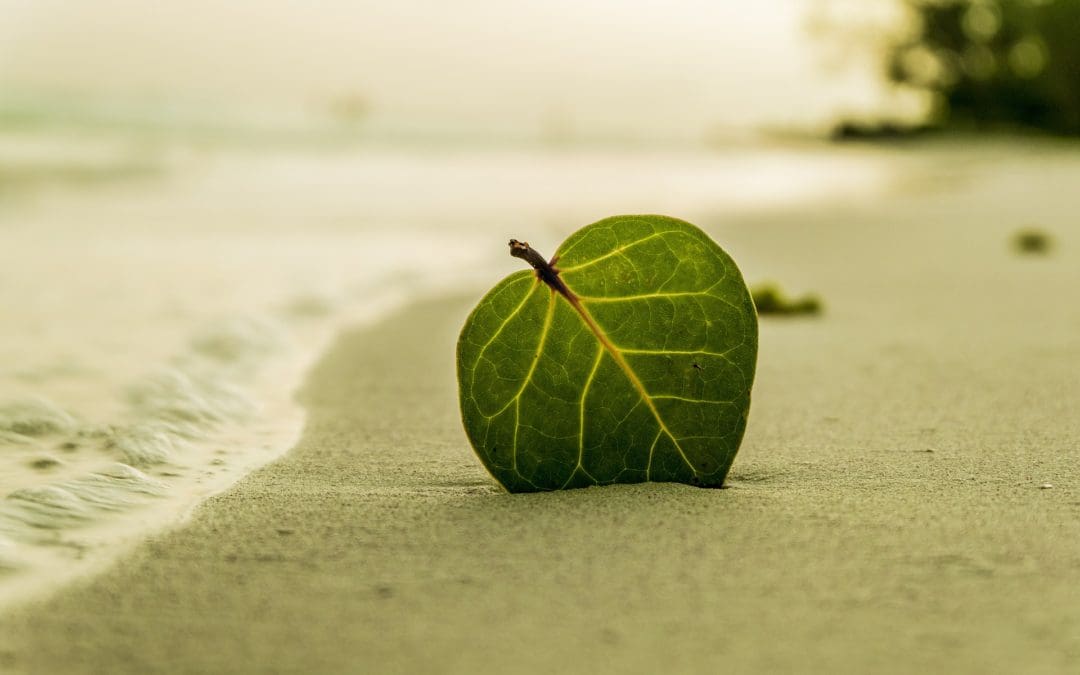
UrthPact Products Protect Every Part of Our Planet – Oceans Included
Wow, hard to believe it’s already June. Where has 2021 gone? This past week we celebrated World Oceans Day, a day dedicated to appreciating the beauty of our oceans, as well as encouraging everyone to do their part in ocean conservation and protection. At UrthPact, we have a goal: to prevent 25 billion pieces of plastic from reaching oceans and landfills by 2028. How exactly are we planning on doing that? By providing customers with a compostable alternative. All of our product lines are certified compostable (industrial or home compostable, or both in some cases), meaning they are guaranteed to break down when disposed of properly, and contribute back to the Earth they came from.
Not only are many of our products certified compostable, but our drinking straws are also made from a material that is certified marine biodegradable and has been successfully tested as landfill biodegradable. Essentially, no matter where on Earth they end up, these straws are guaranteed to break down to harmless elements and compounds. In contrast, petroleum-based products, and even industrially compostable products take hundreds of years to break down, leaving wildlife vulnerable. Our straws pose a much smaller problem for marine life and won’t break down to harmful microplastics.
In 2020, straws were the 5th most collected beach trash item, behind food wrappers, cigarette butts, plastic bottles and plastic bottle caps. While straws may seem like a small drop in the bucket in terms of plastic pollution, it’s somewhere to start. Our goal is to start a revolution: to encourage businesses and consumers to find creative ways to enjoy the convenience they expect while still being sustainable and lessening the volume of plastic waste produced yearly. And it’s not just about landfill waste. It’s about litter in our terrestrial environments, dumping into our oceans, and every ecosystem in between. It’s our responsibility to clean up after ourselves, and to make better choices for our planet, as both consumers and business owners. Implementing UrthPact’s compostable foodservice ware and encouraging composting in your local community or business is a great place to start. Composting allows for the convenience and functionality of disposables, but with none of the environmental guilt.
Besides home compostable drinking straws, UrthPact also manufactures industrial compostable wrapped cutlery, both individually wrapped articles and dining kits. We also work with our coffee roaster/retailer partners to produce industrially compostable coffee pods. Along with coffee pods, we manufacture a branded industrially compostable one-way degassing valve called evalv. Finally, we are working with a variety of partners to supply a line of industrially compostable water and juice bottles. What, you didn’t think we’d get to 25 billion pieces with just straws, did you?
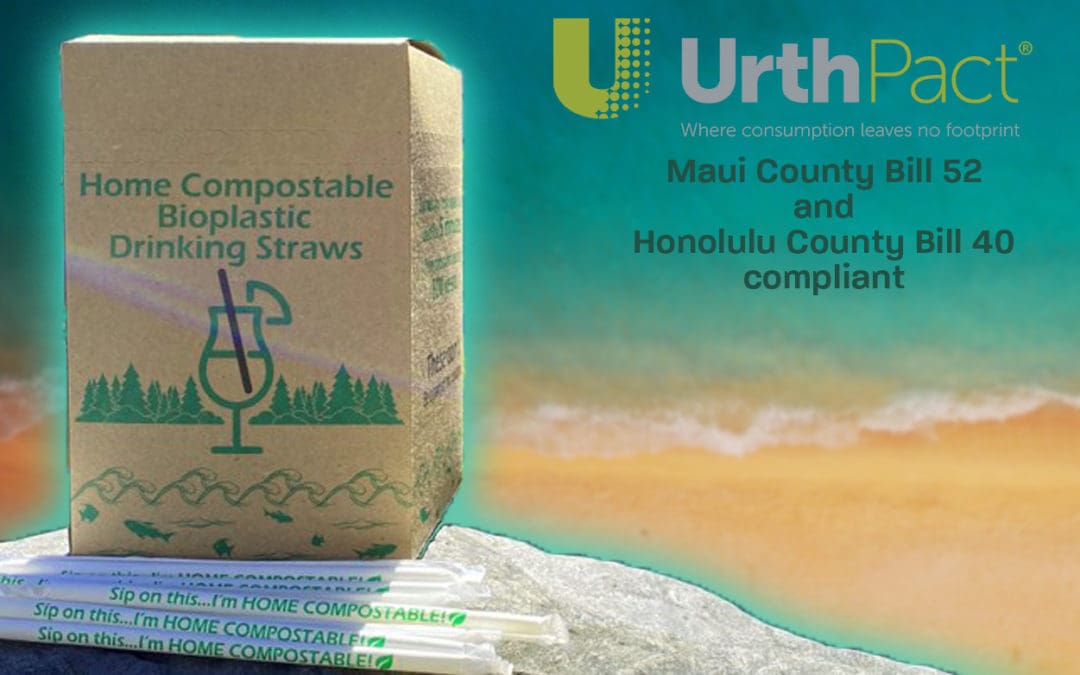
Hawaii Says Goodbye to Conventional Plastic Straws and Aloha to UrthPact’s New Home-Compostable Straws!
HONOLULU & LEOMINSTER, Mass.–(BUSINESS WIRE)–There’s a new drinking straw coming to Hawaii and it’s not another one of those mushy paper ones. It’ll feel and function exactly like the conventional straws you know, but completely biodegrade or compost like the paper straws the planet prefers. And, because they will biodegrade anywhere on the planet — even in the ocean if they accidentally get there — they are perfect for a state made up completely of islands.
UrthPact’s new home-compostable drinking straws will be distributed in Hawaii by Hawaiian Kine Trading.
Starting in May, Hawaiian Kine Trading–an innovative foodservice distributor in Hawaii–will be supplying convenience stores and other food and beverage locations with the new home compostable, ocean-safe straw. Made by UrthPact–the worldwide leader in compostable single-use foodservice ware manufacturing–the straws comply with the new plastics bans being enforced in both Maui and Honolulu counties. They’ll provide customers with a positive drinking experience while also being kind to the planet they came from.
The straws are certified home compostable by TUV Austria and industrial compostable by BPI (Biodegradable Products Institute). They are made from materials that are naturally occurring in nature and are Made in the USA in a Safe Quality Food (SQF) certified facility. Besides straws, UrthPact also produces compostable single-use cutlery, compostable disposable water bottles and caps, as well as compostable packaging for coffee.
A Sippable, Non-Mushy Straw that Works Just Like Your Conventional Plastic Straw, Yet Is Earth-Friendly
This straw isn’t only loved by the environment and the planet; consumers also love the experience of using these straws in their favorite drinks. You can actually get to the bottom of your frozen cocktail, smoothie, or iced coffee without any mush and without having to use a second straw.
Paul Boudreau, CEO of UrthPact said, “We applaud Hawaiian Kine Trading for being the newest addition to join in the revolution against petroleum-based plastics that are littering our roadways, shorelines and destroying our oceans. Our distributor partners are essential to helping us to achieve our corporate goal of preventing 25 billion pieces of plastics from reaching our oceans and landfills by 2028.”
Dallas Stewart, owner and co-founder of Hawaiian Kine Trading said, “We couldn’t believe that you could have a drinking straw that satisfies both consumers and the planet! We’re proud to partner with UrthPact. They are smart, easy to work with, and a world leader in their field. And the straws being fully certified and made in the USA is a real plus in a time when supply chains are strained around the world.”
UrthPact welcomes private-label brands and distributors to become our partners. Restaurants, schools, and large institutions can also contact UrthPact to locate a distributor. To learn more, click here.
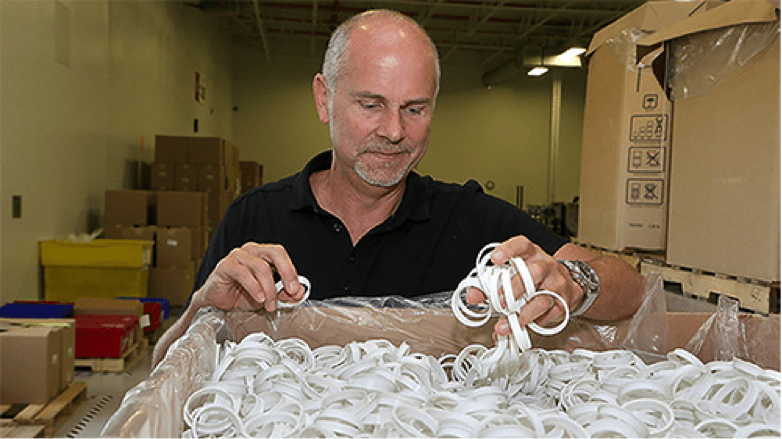
Plastic for Good
Paul Boudreau, president and CEO of UrthPact, is a local boy made good. A native of the blue-collar city of Fitchburg in north-central Massachusetts, Boudreau graduated from the University of Massachusetts at Lowell in 1984 with a degree in mechanical engineering and a minor in plastics engineering.
“I literally was going to change the world,” he says. “I didn’t know how, but I set out to make a difference in the world.”
Boudreau began his career working for a tool and die company, where he designed plastic injection molds and helped the firm convert from conventional drafting processes to computer-aided design. That led to a seven-year stint with Toronto-based Husky Injection Molding Systems at its central Massachusetts facility.
“That opportunity gave me an education in plastics and injection molding that was worth 10 times the paycheck,” Boudreau recalls. “I got to work with major companies all around the world.”
In 1997, when Husky closed its Massachusetts plant, Boudreau decided to launch his own engineering-design company, Innovative Mold Solutions, and it quickly was sought out by other plastic injection molding companies. “For the next 10 or 15 years, we were doing very well,” he says. “We quickly were getting the reputation for being able to do the impossible.”
Boudreau’s company worked with numerous Fortune 500 companies, including defense contractors on projects like night-vision goggles and medical firms on devices used in cancer detection and DNA screening.
In 2012, with his business “somewhat on auto pilot,” Boudreau had an epiphany about the long-lasting impact of plastics on the environment. Four years later, he formally founded UrthPact as a subsidiary of Innovative Mold Solutions. UrthPact’s purpose is stated clearly on its website: “We believe compostable products made from renewable resources are the answer to reducing our dependence on conventional plastic materials and their harm to this planet.”
Greater Good magazine recently caught up with Boudreau to learn more about the evolution of UrthPact and how he has delivered on his aspiration to change the world.
[This article was edited for length and clarity.]
Q: What was the genesis of UrthPact?
I was turning 50 and working with a [life] coach. We started talking about my legacy. I’m an engineer, so this was a little foreign to me. He challenged me: “I want you to start thinking about writing your own eulogy. What is it you want people to say about you when you’re no longer here?” That haunted me.
Q: How so?
In June 2012, I went on vacation with my family to Maine. One morning after a big storm, I went for a walk on the beach. Thinking about my coach’s assignment, I stumbled on a five-gallon pail that had washed up on shore. Like every plastics guy, I picked up the pail and turned it upside down to see whose name was on the bottom. It was a company that I had done work for at Husky. I thought, this pail has my name on it. Then I looked down the beach and saw all the plastic that had washed up. I picked up a plastic fork. It was from a company I had helped. For every single piece of discarded plastic I picked up, I knew the manufacturer or had worked on a plastics project very similar to it. It was freaky.
Q: What happened next?
The following week I received a call from a guy in Brooklyn, New York. He said, “We’re working with a group of coffee roasters, and we’re looking to produce a single-use coffee pod, similar to Keurig’s. But the difference is these roasters won’t have anything to do with standard plastic cups. If they’re going to get into the single-serve coffee business, the cup has to be planet-friendly. Maybe we can make it compostable or biodegradable. Are you interested?”
Q: Sounds like serendipity.
If I hadn’t gone for that walk on the beach, if I hadn’t tried to write my own eulogy, I would have told him, “This isn’t really our niche.” Instead, I said, “What’s the next step?” A couple of days later I was on a plane flying to San Francisco, and I met with the owners of San Francisco Bay Coffee, the Rogers family. They care so much about their name, their reputation, and doing the right thing. There was total synergy of our core values and their core values. Within a year, they were producing the world’s first 100 percent compostable single-use coffee pods. After using it, you put it in the compost pile and they’ll naturally biodegrade.
Q: Who came next?
A local company from Waltham, Mass. — Preserve — came to us and said, “We’re looking to get into the cutlery business, but we want a more sustainable option than conventional plastic.” And I told them, “You’ve come to the right place!” This is when we realized we had found our true purpose.
Q: How was your personal epiphany received at your company?
I was fortunate. I was past the entrepreneurial stage. We were a legitimate, full-scale business. I had a leadership team where I could say, “We’re going to look into this. We’re going to continue to work on this.” We had the coffee-pod business up and running. We proved that we could produce high-volume, compostable and recycled-content, single-use products at a competitive price right here in the United States. And it was scalable. To be able to say this is transferable to other products, that was a big step for us. Our original goal was to keep one billion pieces of single-use plastic from ending up in a landfill or in the ocean. We’ve met that goal and are now 10 times past it.
The owner of Husky once said to me, “I have never worked a day in my life for a paycheck.” That’s a great thing to say, but I recently came to realize at some level what he meant. It’s when you find a purpose — something that’s bigger than you — and you’re working toward that purpose rather than for a paycheck. I had found my purpose. This has very little to do with me and everything to do with the planet.
Q: Regarding UrthPact, have you changed the name of your company?
UrthPact was originally a subsidiary of Innovative Mold Solutions. We wanted to separate our compostable and sustainable efforts from IMS traditional injection molding with petroleum-based products. We have since formed UrthPact Innovations, and we brought both of those companies under one umbrella. [As of December 2020, IMS closed to focus fully on compostable and recycled content products. However, it is still working with two IMS customers making traditional plastic parts for medical devices used in COVID testing kits.]
Q: UrthPact is an intriguing name. The word “pact” is powerful because it implies an agreement between parties. Was that your thinking?
We’re looking to do our part, to be responsible stewards of the planet. It’s not ours to use, it’s ours to pass on to the next generation. I’m compelled by that. We truly believe we have made a pact with the planet and with the next generation. And my pact with the planet is that we will never greenwash. We will never say something that makes it seem like it’s good for the planet just to get more sales.
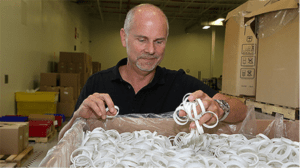
UrthPact President and CEO Paul Boudreau says his purpose has little to do with him and everything to do with the planet.
Q: Has the company also made that commitment?
The company is absolutely committed to doing the right thing relative to our mission, which is creating a world where consumption leaves no footprint. There are several ASTM [American Society for Testing and Materials] standards we follow and official third-party certifications that we hold. If you say your product is biodegradable, even if it takes 25 years to break down, that’s greenwashing. That’s misleading the consumer because 25 years is not a realistic timeline. Our compostable coffee pods naturally disintegrate in 84 days or less in a municipal or industrial compost [environment]. It’s not years, it’s days. Our pact is that we’re going to do this right. If something comes along that doesn’t fit the standard, even if it means a financial benefit to the company, we’re not going to do it.
Q: Does your approach add cost to the products of your business partners?
The material itself, the resin, is more expensive than conventional petroleum-based plastic. Petroleum-based plastics have been around for 75 years. Bioplastics are new. There is a premium for the material, but our objective is to minimize any other [costs] associated with the customer choosing bioplastics. Yes, San Francisco Bay Coffee pays more for their products to be earth-friendly, but their mindset when it comes to this price premium is: “It depends on whose wallet you’re taking the money from. Yes, it’s going to cost us more, but to the planet, bioplastics are less expensive than all these K-cups going to landfills. Who is going to clean that up? And at what cost?” We can only hope there are more companies with these kind of values in the world.
Q: In a consumption-based society, people want the best price. They’re not worrying about where the product is going afterward. Isn’t that the challenge?
Thank the Lord for the 25- to 40-year-olds. This generation doesn’t think like you and me. We were brought up to think “single-use” — convenience, convenience, convenience. Use it once and throw it in the trash. Then convince yourself that things will magically get recycled. The younger generation looks at the impact of plastic on the planet much differently. If they find out there’s a home compostable straw over at that burger place across the street, they’ll switch [brands] in a heartbeat. Then they’ll get on social media and tell the world. The next thing you know, there’s the pressure [to change].
Q: But those younger end-users are not hiring UrthPact. What’s been the response of the business community?
Ten years ago, sustainability wasn’t even considered a C-level position at a Fortune 500 company. Now, 95 percent of all Fortune 500 companies have a C-level position for sustainability. That’s impressive. There’s a huge shift toward being stewards of the planet. Consumers now are demanding sustainable products; and companies are becoming more aware of this consumer shift.
Q: So, you’re seeing a more concerted effort by brands to do right by the environment?
Yes, by far. Perhaps the hottest product, pre-COVID, was cannabis because of its legalization. Within three months, I had 20 people contacting me to see if we could develop compostable packaging for cannabis. Also, beauty products. The smaller, boutique brands want packaging that is plant-based plastic, or bioplastic.
Q: How do you market UrthPact?
Much of our outreach is either through our website or via social media campaigns. We recognize there’s [an education] opportunity that needs to be filled. There’s a lot of new information, and a lot of very confusing information out there. It’s not all black and white. We’re the engineers, we’re the scientists, so we recognize that it’s our responsibility to provide education. Sales will take care of itself. A potential customer needs to make the decision about what they want to do. The greatest value we can provide is making the complexity of this new market segment easy enough for someone to understand to make the right choice. All our social media posts are educational. Insight proceeds change. I’m hopeful that people will say, “That’s a different perspective. We can do that. We don’t have to eliminate our single-use packaging. Let’s find a more sustainable alternative.”
Q: What advice do you have for brands that want to increase sustainability within their manufacturing processes so that they’re making a difference?
The advice I have is to consider that their single-use products are not necessarily the big problem, but rather it is the petroleum-based plastic that they are made from that is the problem. Petroleum-based plastics were designed intentionally to last forever. They were originally used to replace glass with Tupperware, or to be used in electrical connectors so they would last a lifetime. Unfortunately, because these materials became very affordable and easy to use, we ended up using it for single-use product applications. Some people think that the only solution to the plastics problem is to eliminate single-use products. Let’s take straws off the planet. Let’s take single-use cutlery off the planet. Well, that’s not practical. That’s not going to solve the problem. Changing the material to a sustainable plant-based compostable biodegradable material will. We could not feed the population of the world if it weren’t for single-use food packaging. If we ban single-use products, we’re going to improve one issue but create another bigger issue.
Q: Will that require a paradigm shift?
It is not realistic to think that we can ban our way out of the plastic pollution problem. There are way too many positives to single-use products that cannot be overlooked. But the good news is that we now can change the material to a biodegradable and compostable alternative, which will allow brand owners who care about their environmental footprint to provide a truly sustainable alternative to their consumers.
Q: It must be rewarding to know that, when you walk on the beach now, you don’t have to be concerned about finding a piece of plastic from a company you are currently working with.
Yes! And that is the happy ending to chapter one of this story. But, we have so much more to do to put this problem in our rear-view mirror. Our latest goal is to keep 25 billion pieces of plastic from landfills and our oceans.
Article originally published on the ANA website: https://www.ana.net/magazines/show/id/cbp-2021-04-purposeful-people-paul-boudreau
Thanks to ANA Magazine for including Paul in your publication! We’re honored to have been a part of it, and highly recommend everyone go check out their website at https://www.ana.net/.
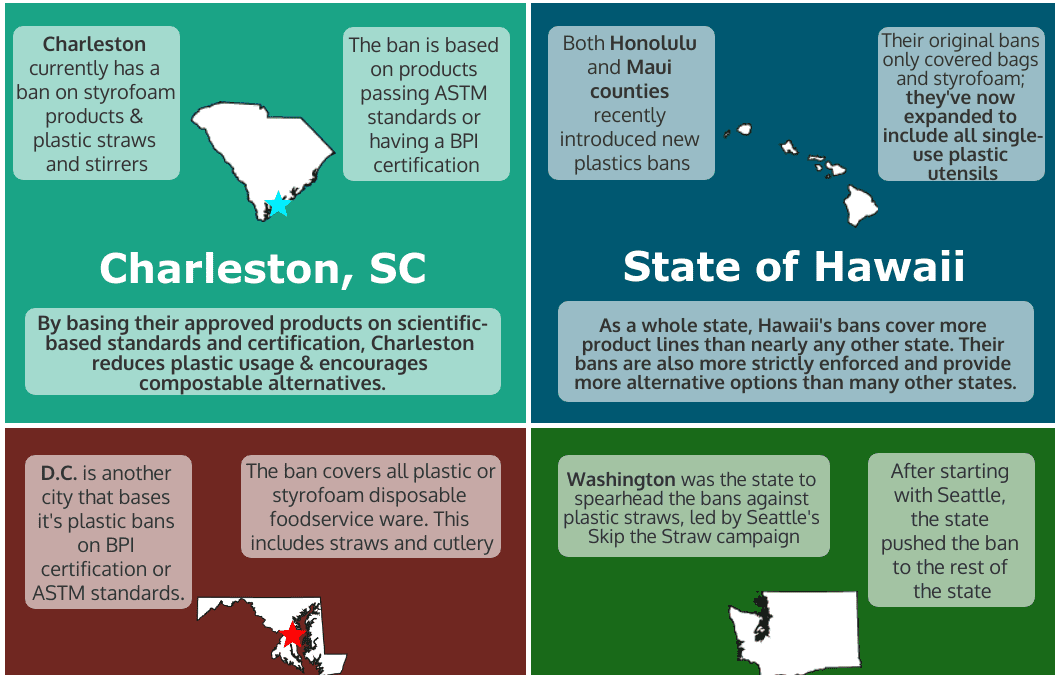
Top 4 Cities _ States for Plastics Bans
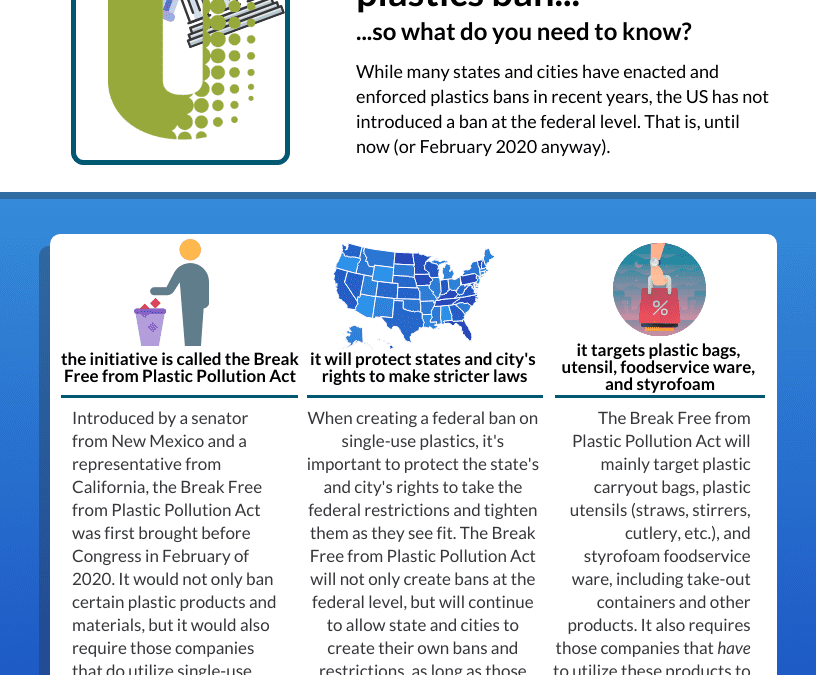
Break Free from Plastic Pollution Act
